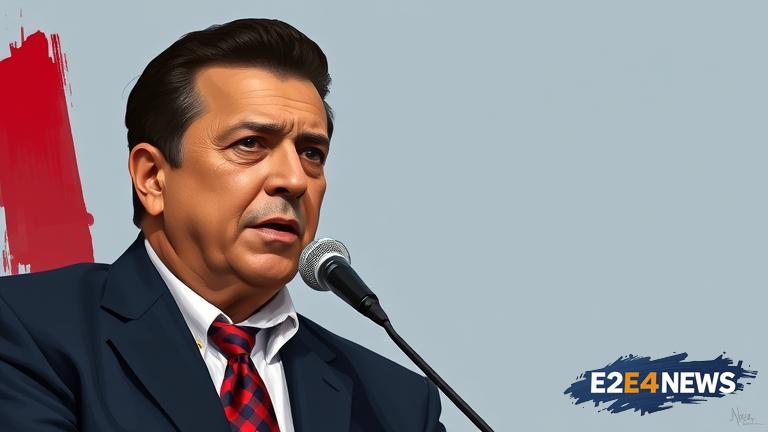The Nicaraguan government has launched an investigation into a former Sandinista leader and long-time ally of President Daniel Ortega, in a move that has sent shockwaves throughout the country’s political establishment. The former leader, who has not been named, is believed to have played a key role in the Sandinista National Liberation Front (FSLN) and has been a close associate of Ortega for many years. The investigation is reportedly focused on allegations of corruption and embezzlement, although the exact nature of the charges has not been disclosed. The move has sparked widespread speculation about the motivations behind the investigation, with some observers suggesting that it may be an attempt by Ortega to consolidate power and eliminate potential rivals. Others have speculated that the investigation may be linked to a broader effort to root out corruption and improve transparency within the government. The FSLN has been in power in Nicaragua since 2007, and Ortega has been president since 2007, with the exception of a brief period from 1990 to 1996. During his time in office, Ortega has faced criticism for his handling of the economy, human rights, and the environment, and has been accused of authoritarianism and suppressing opposition. The investigation into the former Sandinista leader is likely to be closely watched by the international community, which has been critical of Ortega’s government in recent years. The United States, in particular, has imposed sanctions on several high-ranking Nicaraguan officials, including Ortega’s wife, Rosario Murillo, who serves as the country’s vice president. The European Union has also expressed concerns about the human rights situation in Nicaragua and has called for greater transparency and accountability within the government. Despite the challenges facing his government, Ortega remains a popular figure in Nicaragua, and his party has a strong base of support among the country’s poor and working-class communities. However, the investigation into the former Sandinista leader has raised questions about the stability of the government and the potential for further unrest in the coming months. The Nicaraguan economy has struggled in recent years, with high levels of poverty and inequality, and the country is heavily dependent on foreign aid and investment. The investigation is also likely to have implications for the country’s relationships with its neighbors and international partners, and may lead to increased scrutiny of Ortega’s government and its human rights record. In recent years, Nicaragua has faced criticism for its treatment of opposition activists, journalists, and civil society groups, and has been accused of using excessive force to suppress protests and dissent. The investigation into the former Sandinista leader is a significant development in the country’s ongoing political drama, and is likely to be closely watched by observers in the region and around the world. As the investigation unfolds, it is likely to shed more light on the inner workings of the Ortega government and the motivations behind the probe. The former Sandinista leader is believed to have been a key player in the country’s politics for many years, and their downfall could have significant implications for the balance of power within the government. The investigation is also likely to raise questions about the role of the FSLN in Nicaraguan politics and the potential for reform or change within the party. With the country’s economy and human rights situation already under scrutiny, the investigation into the former Sandinista leader is a major development that is likely to have far-reaching consequences for Nicaragua and its people. The international community will be watching the situation closely, and will be looking for signs of greater transparency and accountability within the government. As the situation continues to unfold, it is likely to be marked by increased tensions and uncertainty, and may lead to further unrest and instability in the coming months. The investigation into the former Sandinista leader is a significant test for the Ortega government, and will be closely watched by observers in the region and around the world. The outcome of the investigation is likely to have major implications for the country’s politics, economy, and human rights situation, and may lead to increased scrutiny of the government and its actions. The Nicaraguan people will be watching the situation closely, and will be looking for signs of greater transparency and accountability within the government. The investigation into the former Sandinista leader is a major development in the country’s ongoing political drama, and is likely to have far-reaching consequences for Nicaragua and its people.
